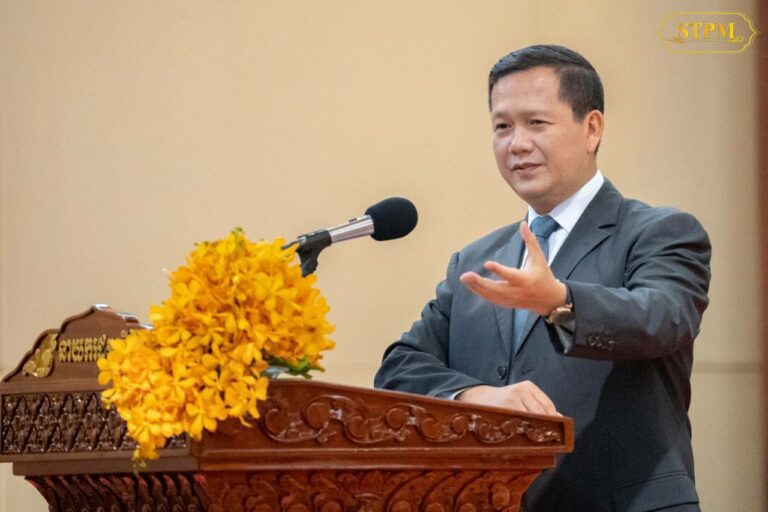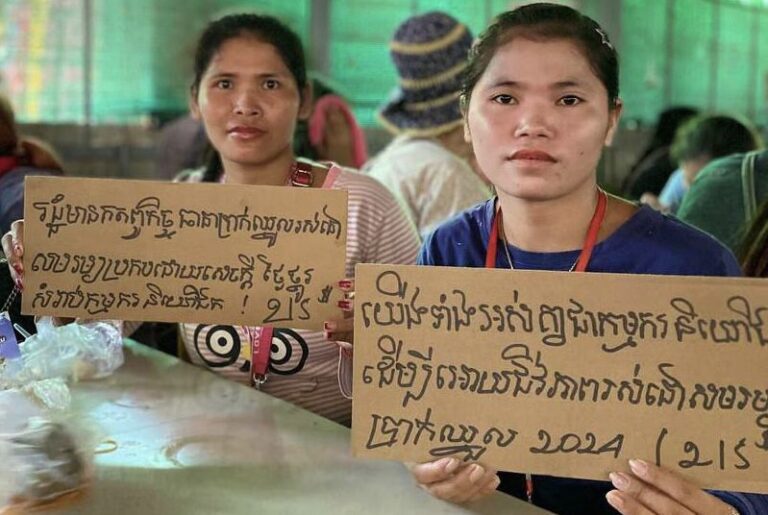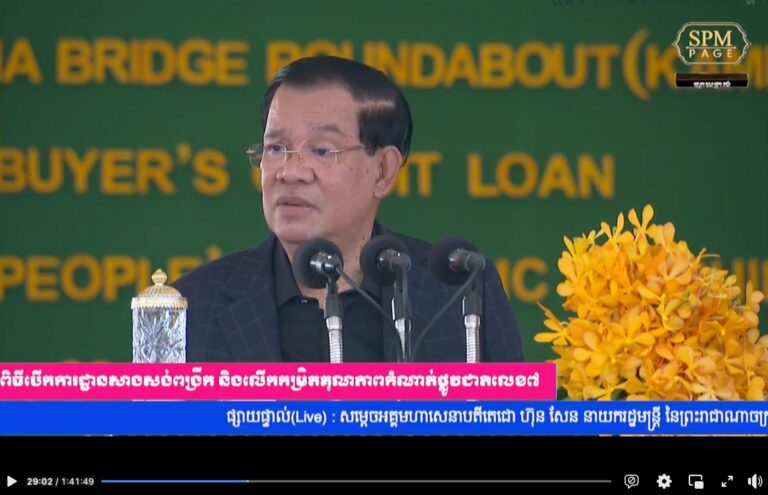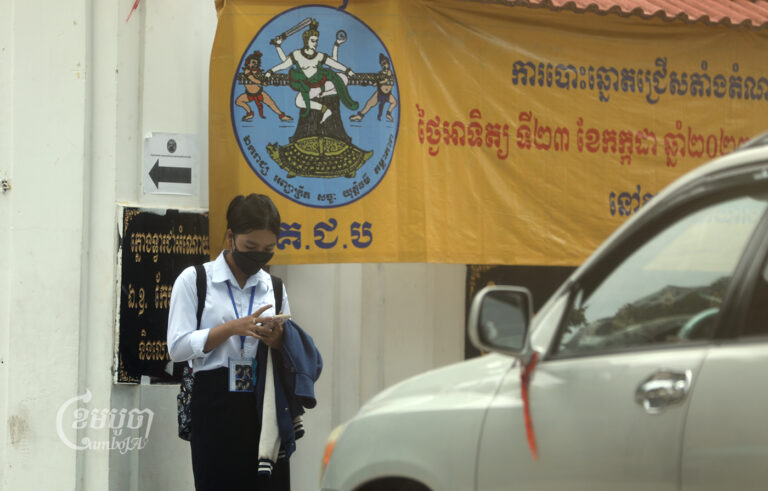Loun Kimhor, a family-run online clothes and shoes retailer in Preah Vihear province, has spent roughly $300 per month boosting her Facebook page, which earned her between $500 and $800 in monthly revenue.
Recently, however, she received a notification from Meta for Business announcing that beginning April, the company will – according to Cambodian requirements – start charging all online businesses, regardless of their size, a 10 percent value-added tax (VAT) for advertising and selling products on their Facebook page.
This means Kimhor would now have to spend roughly $330 to promote her page monthly, and that she would have to increase the price of her products accordingly.
She said the government’s measure to increase tax revenue would only hurt small online businesses, and that it should more clearly define what this new tax would mean for them.
“I do not want the government to impose this VAT on small online sellers because we just make a small earning for daily use,” she said. “I support imposing it on large online firms since they can earn a lot of money.”
The government has been making more efforts to mobilize tax revenue to fill state coffers, even during the pandemic – ranging from tax on e-commerce and VAT, to capital gains tax on properties.
This move by Facebook comes after a March 18 announcement from Cambodia’s General Department of Taxation (GDT) that all e-commerce or platforms are required to pay 10 percent of VAT, effective from April 1.
Cambodian’s e-commerce activities are usually conducted via Facebook, the country’s most popular social media platform, which counts more than 17 million internet subscribers in Cambodia as of January 2022.
During the first three months of this year, Cambodia collected $1.2billion in tax revenue, according to Prime Minister Hun Sen, citing a GDT report. In March alone, the GDT collected $700 million.
According to GDT, the main sources of revenue derive from income tax, VAT, specific tax, and tax on salary – each showing an increase of more than 10 percent.
Hun Sen has praised the GDT head for leveraging on tax collection and described the COVID-19 period as a “most satisfying time” due to the increase in tax revenue.
The GDT also recently announced a crackdown on fraud and tax evasion worth up to tens of millions of US dollars.
According to the World Bank, Cambodia’s economic growth is projected to be 4.5 percent this year.
Anthony Galliano, a tax expert and group CEO of financial services company Cambodian Investment Management Holding, said that the scale of the reassessments of the audits and the increase in taxpayers resulted in the increase of revenue.
“The existing taxpayer base is experiencing a higher frequency of audits and the reassessments applied are of a greater extent,” he said. “There has also been an increase in taxpayer compliance as the system is much more disciplined with greater and more severe enforcement.”
Galliano also said that the introduction of VAT for non-resident e-commerce providers is also a positive step in the addition of new tax categories and the diversification of tax types.
However, to date, the registration of non-resident e-commerce providers has been tepid. “It will take quite some time before tax collection from this new base is meaningful,” he said.
As the government announced the rise in tax revenue, Cambodia’s social observers have suggested that it should be used in a transparent manner to serve the public interest.
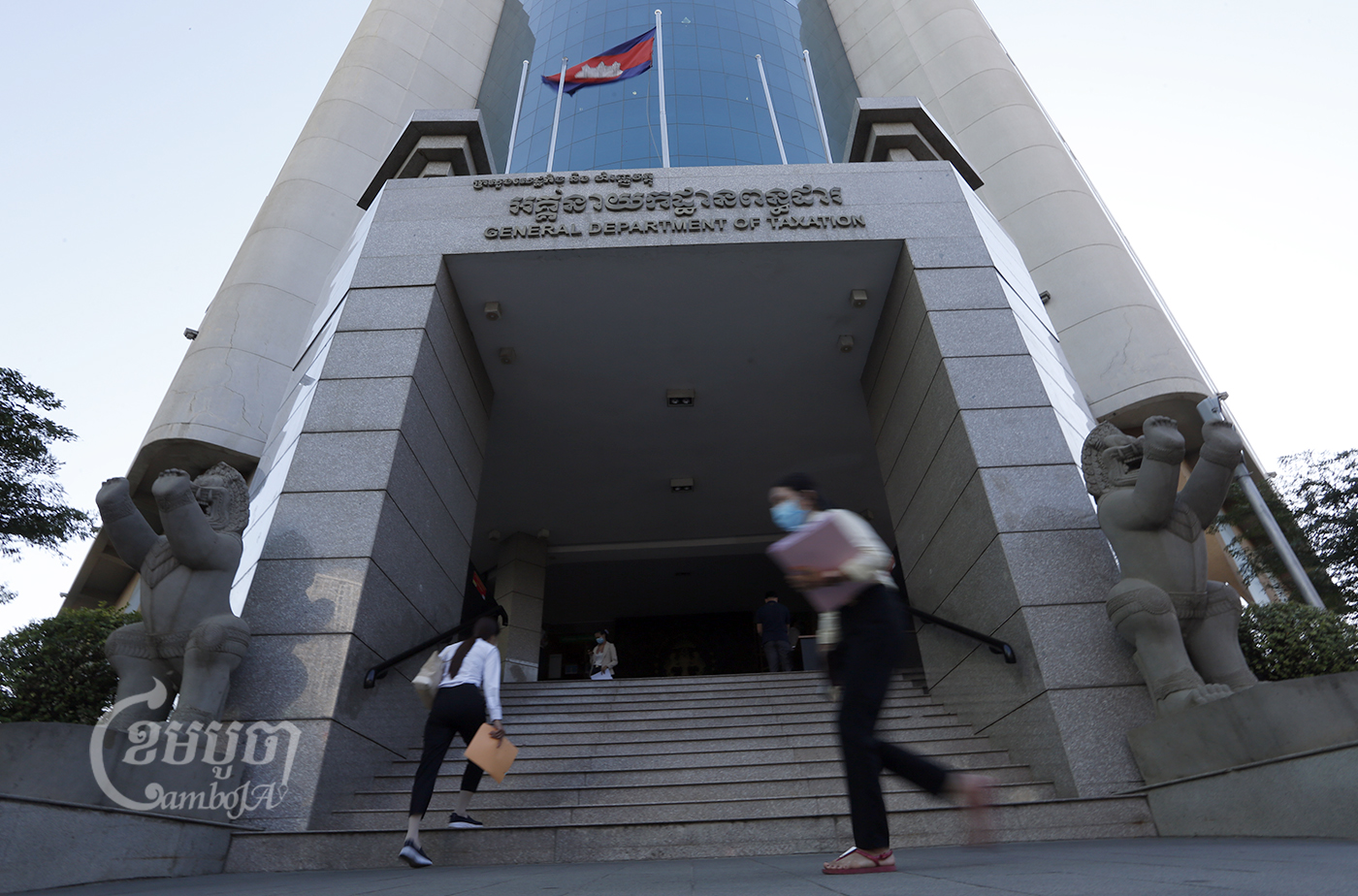
Vorn Pao, President of the Independent Democracy of Informal Economy Association (IDEA), said that the government must use this additional revenue to provide quality public services to the people, untainted by corruption. He said that this is especially true for vulnerable informal workers.
“The government must also pay attention to subsidies on essential commodities, such as oil and gas prices to reduce the burden on informal workers,” he said. “Most informal workers have not yet received their IDPoor cards, although the state has introduced a policy to help the vulnerable.”
Meas Soksensan, a spokesperson for the Ministry of Economy and Finance, could not be reached for comment.
According to the World Bank, Cambodia’s 2022 budget deficit is expected to reach 6 percent of the country’s GDP.
A report revealed that the government is expected to borrow 60 percent of its external debt, while other borrowings are expected to finance the government’s declining deposits.
The cash transfer program is the largest component of the government support package. As of February, the program covers 690,000 households, equivalent to 2.7 million people. The program has spent $594 million since March 2020, which has facilitated and reduced the impact of the pandemic on poor and vulnerable families.
Pech Pisey, the executive director of Transparency International Cambodia, said that the government needs to have more accountability, transparency, and responsibility as more people pay tax.
“People also need the government to be transparent in budget management and [there should be] no corruption,” he said. “We want to see that the national budget is used to respond to the people’s needs and to focus on the poor and vulnerable to reduce poverty.”
Pisey said that investing on critical infrastructure – especially road and bridge connections, electricity, and water supply – is what the people need. He also said that people want improved education and public health services.
It Thel, a tuk-tuk driver who works the area around Kuntha Bopha hospital, said that he does not know much about the government’s tax revenue collection, but that he is aware of the gaps in public services.
“I just know that when we are seriously ill, we go to the hospital, but they demand money first,” he said.
San Chey, Executive Director at the Affiliated Network for Social Accountability (ANSA), said that the government’s response to the provision of public services has not yet been evaluated in terms of efficacy, since there is a lack of access to information and what goes on in budget planning consultations.
“The broader the consultation, the more basic comments may be used as an input for national budget planning to better serve the needs of the people, particularly those who want assistance,” he said.
“We know that taxes are an obligation, so spending money from tax collection should be a specific benefit and we should use it very carefully.”



